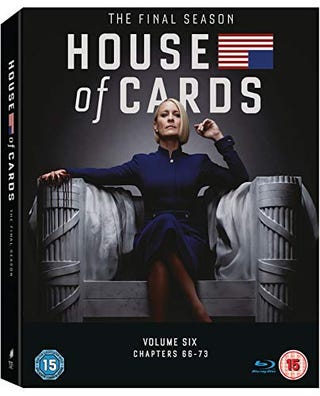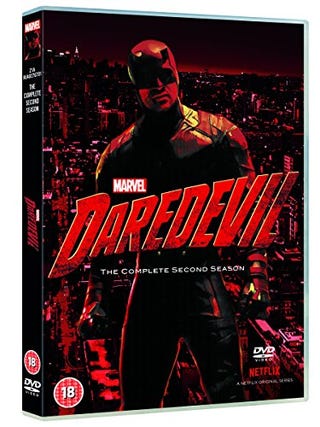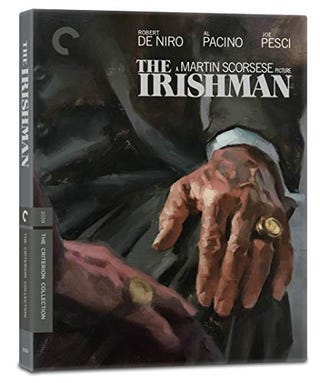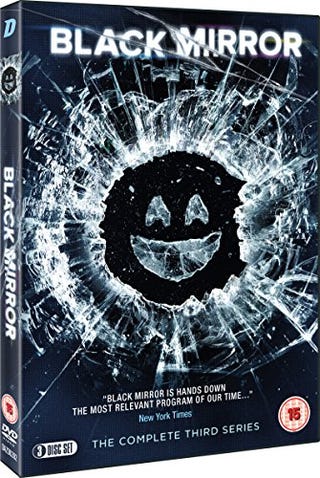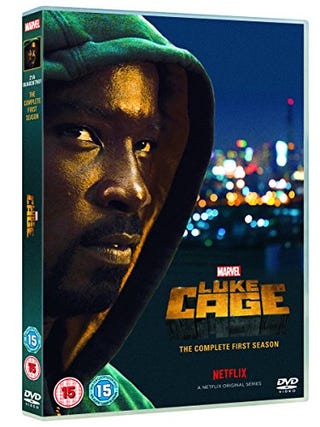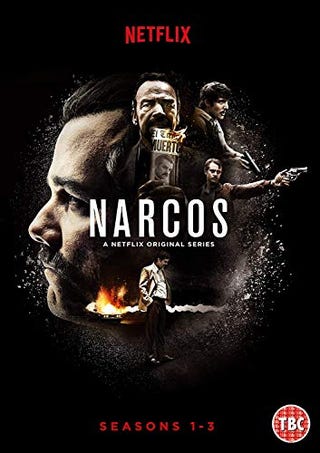Better Call Saul series finale spoilers follow.
After six seasons and 63 episodes, Better Call Saul came to an end with a heartbreaking finale, 'Saul Gone', that not only wrapped up the storyline of our favourite con man/lawyer/fugitive but even neatly tied in plot threads from the show it was originally spun from, Breaking Bad.
Viewed by many fans as even better than its predecessor, the final season of Better Call Saul was arguably its best, and has been winning awards for the cast and creators, including a recent triple win for star Bob Odenkirk, supporting actor Giancarlo Esposito and the series itself (Best Drama Series) at the Critics' Choice Awards.
In his speech, 60-year-old Odenkirk thanked creators Vince Gilligan and Peter Gould, as well as the cast, including Rhea Seehorn as Kim. "I was surrounded by the greatest writers and the greatest cast ever," he said. "When you see me acting, okay, you're not watching talent. You're watching only elbow grease. That's all you're watching, is sweat and elbow grease. And then standing around me is talent and that makes you look good."
Odenkirk has been playing the role of morally ambiguous Saul Goodman since 2009, when we first met the lawyer in season two of Breaking Bad. Better Call Saul revealed that Saul began life as Jimmy McGill, a struggling lawyer living in the shadow of his highly accomplished brother Chuck (Michael McKean).
The series also showed us just what happened to Saul/Jimmy after his association with Walter White (Bryan Cranston) – he fled to Omaha under a new identity (Gene) and worked as a baker at a shopping-mall Cinnabon – and this final episode brings all three of his personae together as Jimmy’s, Gene’s and Saul’s worlds collide.
While the penultimate episode ended with Gene’s true identity being discovered by feisty Marion (Carol Burnett), who used her medical-alert alarm to notify police, 'Saul Gone' begins with a flashback of Mike (Jonathan Banks) and Saul out in the desert, stranded (as they were in season five’s episode 'Bagman') with $7 million in canvas bags.
If Mike could use the money to build a time machine to go back in time, where would he go, asks Saul as they sit in the baking sun. Mike immediately picks a date he regrets (when he took his first bribe as a cop) as a moment he could go back and change, while Saul’s choice just involves a way of making money.
It’s one of a handful of flashback moments in the episode that serve as testimony to Saul/Jimmy’s character – there’s also one with Walter and one with Chuck (keep your eyes peeled for the book he is reading in that one). By this point in time, was he really so far gone from his true self that money was all that mattered?
We’re then whipped back to the present, with Saul/Gene running away from Marion’s house in an attempt to evade the police, his small shoebox of treasures (some cash, a few diamonds and that useful Ed’s vacuum repair phone number that would lead to another new identity and location for our fugitive) under his arm.
There’s no escape this time, however, and Saul is found hiding in a dumpster by the cops and arrested. "This is how they get you," mutters Saul in his cell, before he hatches a plan that involves hiring his old legal nemesis, former Albuquerque DA Bill Oakley, as his lawyer to negotiate a deal with the various authorities.
The FBI, police, and DEA all want to send him away forever for crimes including money laundering and being an accessory to murder after the fact (those murders being the ones Walter was responsible for, including the death of cops Hank Schrader and Steve Gomez).
In a surprising twist, Hank’s widow Marie (Betsy Brandt, welcome back!) is there for Saul’s plea bargain, determined to finally see some justice for her husband. But Saul delivers a speech about being kidnapped by Walter and Jesse and forced to work for them that the prosecutors realise could place seeds of doubt in jurors’ minds, destroying their case. He's offered a deal of just 85 to 90 months in prison.
To show he has the upper hand – having already demanded to be sent to a cushy prison that has its own golf course – Saul offers information on lawyer Howard Hamlin’s death, only to be surprised that his ex-wife, Kim, has already been to police and confessed her involvement, opening herself up to prosecution.
Another flashback – this time to Walter and Saul in the underground bunker where they were held before they were given new identities and lives by Ed (the late Robert Forster) in Breaking Bad (season five's 'Granite Slate' if you want another look). Again, the subject of the time machine and regrets are touched on, with Saul’s regret simply being how he pulled off a con that ended up with him injured.
"So you were always like this," Walter comments after hearing the story. It certainly appears that way, although we viewers know that the time Saul – when he was still Jimmy – spent with Kim was probably the one time when he was closest to being the better man he wanted to be.
This scene actually says as much about Walt as it does about Saul – first he rages about being cheated by Gray Matter Technologies, showing he hasn't really learned anything at all – but there is a hint of regret in a moment that is easily missed.
When Saul asks Walter about what he regrets, he glances at his watch – and it's the Tag Heuer Monaco watch that Jesse Pinkman gave him for his birthday. Could this mean that Walt – who never seems to show regret for the treatment of his wife or poor, dead Hank – does have a smidgen of guilt for the way he treated his one-time drug-making partner?
Meanwhile, it seems all roads for Jimmy/Gene/Saul were destined to lead to a courtroom, and we return to the present to see Jimmy walking into court in his shiny Saul suit, ready to sign the deal that will give him a (relatively minor) seven-year sentence.
Kim – whose own way of dealing with her role in Howard’s death has been to confess to his widow and take on a volunteer job in a legal aid firm in Florida – is present to hear Saul’s well-rehearsed speech about being abducted by Walter and Jesse.
However, this time he delivers it with a new ending, revealing that, while they did kidnap him, he then saw an opportunity and worked for Walt willingly, making millions in the process. "Walter White couldn’t have done it without me," he tells the court, while the courtroom exit sign glows meaningfully above his head.
He then reveals his part in his brother’s death – he had Chuck’s law licence revoked for malpractice, which lead to Chuck’s suicide – for Kim’s benefit. "And I’ll live with that," he adds. When the judge asks him to take his seat, referring to him as Mr Goodman, he replies, "I’m James McGill." If the exit sign wasn’t a clue, then the episode title sums up this moment – Saul Has Gone.
Of course, Jimmy’s confession, while it absolves Kim, ruins his sweetheart deal. Instead of heading off to the spa-like prison, we see him shackled in a bus heading to Montrose (a prison Jimmy had previously described as 'the Alcatraz of the Rockies') to live out a sentence of 86 years.
It may not be all bad, however, as his fellow prisoners recognise him, chanting 'Better Call Saul' in appreciation, and he gets a job in the prison bakery that doesn’t look much different to his old Gene job at Cinnabon.
So, they know him as Saul, despite McGill’s wish to be referred to as 'Jimmy' in the courtroom scene, he will live with his pseudonym until he dies (most likely in prison). This isn’t necessarily a bad thing, Saul’s fellow prisoners respect him deeply - he probably helped half of them avoid harsher sentences at some point in their criminal careers - and they clearly have his back.
It’s while working that he's told his attorney is there for a visit, but when he reaches the visitor’s room it isn’t Bill who is waiting there. It's Kim.
'Hi Jimmy,' she says as she walks into the room - showing that not everyone is ignoring his chosen identity. Kim will always see him as Jimmy, as will we. Ironic that a show called Better Call Saul hardly featured Saul at all.
While Kim's no longer a practising lawyer, she still has her New Mexico Bar card, which she tells him has no expiration date, so she was able to pretend to be his counsel.
In an echo of the scene from Better Call Saul’s very first episode, 'Uno', where they shared a cigarette in the parking garage of law firm HHM, Jimmy and Kim lean against the wall of the prison visiting room and smoke together.
They then say goodbye, on opposite sides of the prison fence, maybe forever. Or, if you're searching for any hint of a happy ending (and, despite Jimmy/Saul’s devious ways, you probably can’t help but want one), perhaps Kim’s comment that her lawyer card has no expiration date means that one day she will come and visit Jimmy again.
Better Call Saul aired on AMC in the US and on Netflix in the UK.











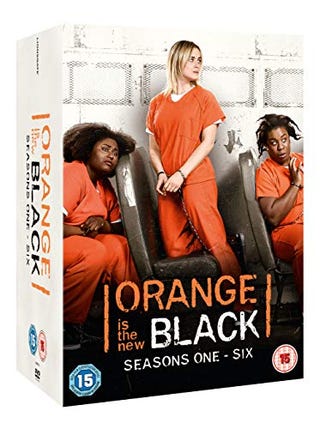
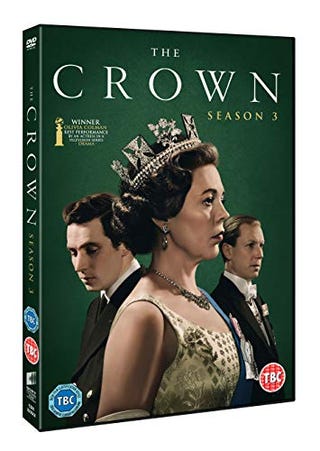
![Star Trek Discovery Season 2 [DVD] [2019] Star Trek Discovery Season 2 [DVD] [2019]](https://hips.hearstapps.com/vader-prod.s3.amazonaws.com/1600241843-51s-JjQrHaL.jpg?crop=1xw:1xh;center,top&resize=320%3A%2A)




